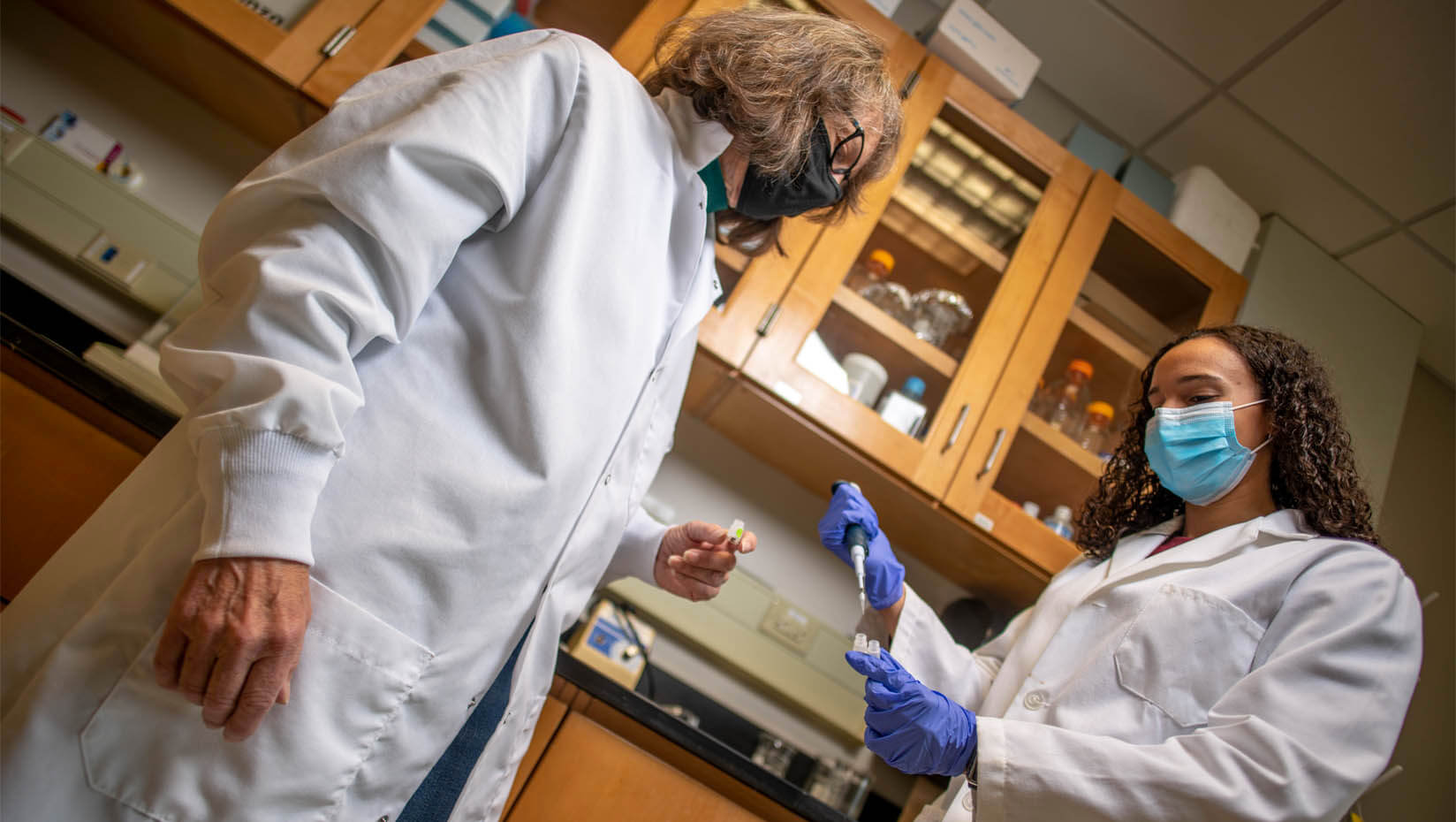
Study explores ‘wicked problem’ of COVID-19’s impact on research and scholarship in higher education
Editor’s note: Updated Jan. 10, 2023
The COVID-19 pandemic has been a “wicked problem” for higher education, argue researchers from the University of Maine who recently published a study exploring how the first year of the pandemic affected research activities at the institution.
“Wicked problems are complex, nonlinear and unique, with a high likelihood of serious consequences without quick solutions,” says Asli Sezen-Barrie, lead author of the study and an associate professor of curriculum, assessment and instruction at UMaine’s College of Education and Human Development.
“We view the pandemic as a wicked problem for higher education, because it forced decision-makers to develop urgent and dramatic solutions to prevent viral spread, such as travel restrictions, transition to online teaching and safety measures for labs and classroom facilities,” says Sezen-Barrie.
As is often the case with wicked problems, Sezen-Barrie and her co-authors say the pandemic amplified challenges that were already present in higher education, including financial instability, inequalities, and social and cultural barriers to creating communities of practice and social connections on a college campus.
To better understand the challenges raised or exacerbated by the pandemic, they surveyed more than 400 University of Maine faculty, staff and graduate students about how the first year of living with COVID restrictions affected research activities, productivity, and health and wellness, as well as how pandemic conditions made them think about adaptations to sustain or increase their scholarly work.
According to the survey, 78% of participants reported reduced research and scholarship productivity, including 83% of tenure-track faculty and 77% of graduate students.
The reasons for reduced productivity included increased work responsibilities, limited access to research fields and inadequate resources. Some specific examples were captured in qualitative survey responses. For example, one faculty member discussed not being able to access K–12 schools, where they were conducting research.
“I had a five-year pilot project for a school-based intervention effectively shut down by the pandemic,” the faculty member reported. “We were going to run a quasi-experimental evaluation of the project in the schools we partner with after four years of work this year and are now unable to because of the disruption schools have experienced.”
A graduate student talked about how lack of resources affected their course of study.
“I’ve had to abandon my thesis altogether, for lack of access to research materials, and switch to completing my degree by coursework alone, which has set me back about 18 months,” the student said.
At the same time, the study asked participants how they adapted to improve or sustain productivity in the face of pandemic restrictions. One theme that the authors note from the survey data was the emergence of new opportunities due to wider adoption of virtual tools.
“Scientific conferences going online is a huge boon,” said one professor from the Sciences. “Saves TONS of time and money and creates great opportunities for undergrad and grad students to attend whereas they otherwise would be excluded due to the high costs.”
In terms of health and well-being, nearly a third of survey participants (29%) highlighted mental health issues, including anxiety and fear about the pandemic, burnout/exhaustion and increased stress. One junior faculty member talked about how the pandemic impacted family obligations and led to increased stress when it came to their career aspirations.
“It cannot be stated enough how hard it has been getting any research done with a 2- and 4-year-old at home,” said the faculty member, identified as a female assistant professor. “It is mentally hard to see colleagues without kids being more productive and just having absolutely no way to get there.”
Besides Sezen-Barrie, the study’s authors include Lisa Carter, Ph.D. student in higher education; Sean Smith, associate professor in the School of Earth and Climate Sciences; Deborah Saber, associate professor of nursing; and Mark Wells, professor of marine sciences. The project was initiated by the Research and Scholarship Committee of the University of Maine’s Faculty Senate and received funding from the Office of the Vice President for Research and Dean of the Graduate School at UMaine.
The authors say their findings suggest that resuming pre-pandemic operations is not a viable option for higher education institutions moving forward.
“There’s a need to collaboratively develop new sets of guidelines to help researchers and scholars optimize operational responses based on what we have learned from the pandemic conditions,” they argue.
They also suggest that other colleges and universities undertake similar studies to “provide a basis for comparisons of institutions in varied geographic settings and demographic situations to guide holistic strategies for higher education at a national level.”
The study was published in the journal Innovative Higher Education and is available online.
Contact: Casey Kelly, casey.kelly@maine.edu.
